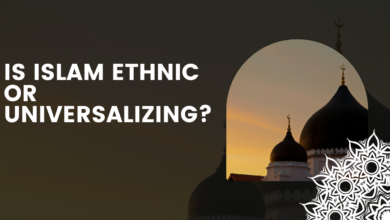What are the most important things in Islam?
Unveiling the Core Beliefs and Practices of Islam

What are the most important things in Islam?
Tawhid represents the fundamental belief in the oneness of Allah (God) and serves as the cornerstone of Islamic faith. It underscores the absolute uniqueness and sovereignty of God in the lives of Muslims.

Introduction-What are the most important things in Islam?
Islam, one of the world’s major religions, is deeply rooted in a set of beliefs and practices that guide the lives of over a billion Muslims worldwide. At its core, Islam emphasizes the importance of faith, worship, morality, and community. In this article, we will delve into the most crucial aspects of Islam, shedding light on the fundamental principles that shape the lives of Muslims and their relationship with Allah.
Tawhid – The Oneness of God
At the heart of Islamic belief lies the concept of Tawhid, the absolute oneness and uniqueness of Allah (God). Muslims believe that there is no deity but Allah and that He is the Creator and Sustainer of the universe. This belief in the oneness of God is the cornerstone of Islam and permeates every aspect of a Muslim’s life. It inspires devotion, humility, and gratitude to the one true God.
Also check.
- When does Ramadan end?
- Why Do Muslims Celebrate Eid al-Adha?
- Why is it haram to abuse in Islam?
- Who became a Muslim during the reign of Prophet Muhammad?
- What was the first battle that Prophet Muhammad fought?
The Five Pillars of Islam
The Five Pillars of Islam are the core religious duties that every Muslim is obligated to follow:
Shahada (Faith): The declaration of faith, bearing witness that there is no god but Allah, and Muhammad is His messenger.
Salat (Prayer): Muslims are required to pray five times a day, facing the Kaaba in Mecca, as a means of maintaining a close connection with Allah.
Zakat (Charity): Muslims are encouraged to give to the needy, typically 2.5% of their wealth annually, promoting social justice and community welfare.
Sawm (Fasting): Observing fasting during the holy month of Ramadan, Muslims abstain from food and drink from dawn to sunset, fostering self-discipline, empathy for the less fortunate, and spiritual growth.
Hajj (Pilgrimage): If financially and physically able, Muslims are required to make a pilgrimage to the holy city of Mecca at least once in their lifetime. This journey symbolizes unity and equality among Muslims worldwide.
The Quran – The Holy Book
The Quran is the sacred scripture of Islam, believed to be the word of Allah as revealed to the Prophet Muhammad. It serves as the ultimate guide for Muslims in matters of faith, ethics, and conduct. Recitation and contemplation of the Quran are central to Islamic practice, promoting spiritual growth and moral guidance.
Prophets and Messengers
Muslims believe that Allah has sent prophets and messengers throughout history to guide humanity. These include Adam, Noah, Abraham, Moses, and Jesus, among others. The final prophet is Muhammad, whose teachings and example, as recorded in the Hadith (sayings and actions of the Prophet), serve as a source of inspiration for Muslims.
Ethics and Morality
Islam places great emphasis on ethical behavior and moral character. Muslims are encouraged to lead virtuous lives, practicing compassion, honesty, humility, and justice. The ethical code outlined in Islam is not limited to personal conduct but extends to interactions with others and society as a whole.
Brotherhood and Community
Community (ummah) is integral to Islam. Muslims are encouraged to support and care for one another, fostering a sense of brotherhood and unity. This principle extends beyond religious beliefs, emphasizing the importance of assisting those in need, regardless of their background.
The Day of Judgment
Muslims believe in the Day of Judgment, where individuals will be held accountable for their actions in this life. Belief in the afterlife serves as a powerful motivator for righteous living and acts as a reminder of the consequences of one’s deeds.
Conclusion
In Islam, the most important things are rooted in faith, worship, morality, and community. The oneness of Allah, the Five Pillars, the Quran, ethical conduct, the sense of community, and the belief in the Day of Judgment are all fundamental aspects that guide the lives of Muslims and shape their relationship with Allah. These principles provide a strong foundation for a life of purpose, spirituality, and moral uprightness, helping Muslims navigate the challenges of the modern world while remaining steadfast in their faith.
FAQs
What is the significance of Tawhid in Islam?
Tawhid represents the fundamental belief in the oneness of Allah (God) and serves as the cornerstone of Islamic faith. It underscores the absolute uniqueness and sovereignty of God in the lives of Muslims.
What are the Five Pillars of Islam, and why are they important?
The Five Pillars of Islam are Shahada (Faith), Salat (Prayer), Zakat (Charity), Sawm (Fasting), and Hajj (Pilgrimage). They are essential acts of worship and devotion that guide a Muslim’s daily life, fostering a strong connection with Allah and promoting moral and social values.
What is the significance of the Quran in Islam?
The Quran is the holy scripture of Islam, believed to be the word of Allah as revealed to the Prophet Muhammad. It is a source of guidance for Muslims in matters of faith, ethics, and conduct, and it plays a central role in the life of a practicing Muslim.
How do ethics and morality play a role in Islam?
Islam places a strong emphasis on ethical behavior and moral character. Muslims are encouraged to lead virtuous lives, practicing compassion, honesty, humility, and justice. These values guide personal conduct and interactions with others.
What is the concept of brotherhood and community in Islam?
Islam encourages a sense of brotherhood (ummah) and community among its followers. Muslims are urged to support and care for one another, transcending religious beliefs and backgrounds, with the goal of creating a harmonious and supportive society.
What do Muslims believe about the Day of Judgment?
Muslims believe in the Day of Judgment, a day when all individuals will be held accountable for their actions in this life. It serves as a powerful motivator for leading a righteous life and underscores the consequences of one’s deeds.
Who are the prophets and messengers in Islam?
Islam acknowledges a long line of prophets and messengers, including Adam, Noah, Abraham, Moses, and Jesus, among others. The final prophet is Muhammad, whose teachings and actions, recorded in the Hadith, serve as a source of inspiration for Muslims.
How does Islam promote unity among its followers?
Islam promotes unity through its emphasis on the ummah, fostering a sense of brotherhood and community. Muslims are encouraged to support and care for one another, creating a strong bond among believers worldwide.
Are the principles of Islam adaptable to modern life?
Yes, the principles of Islam are adaptable to modern life. While the core beliefs remain unchanged, Muslims interpret and apply Islamic teachings to address contemporary challenges and lead fulfilling lives in today’s world.
Can non-Muslims engage with and learn about Islam?
Absolutely, non-Muslims are encouraged to engage with and learn about Islam. Many resources, including books, educational institutions, and community events, are available to help individuals gain a better understanding of Islam and its teachings.



